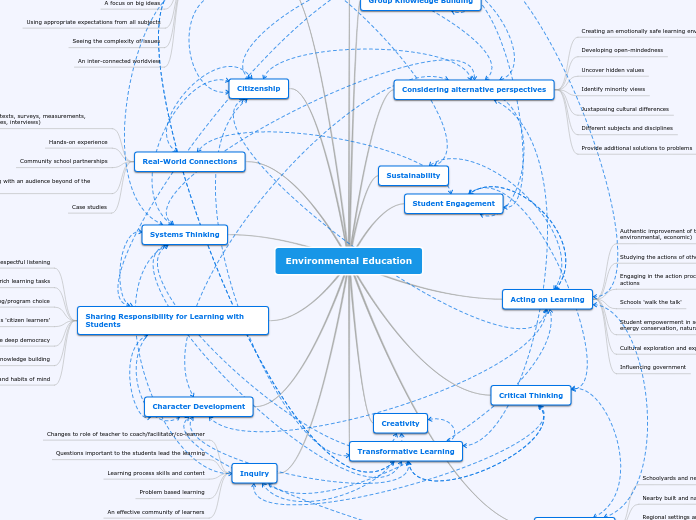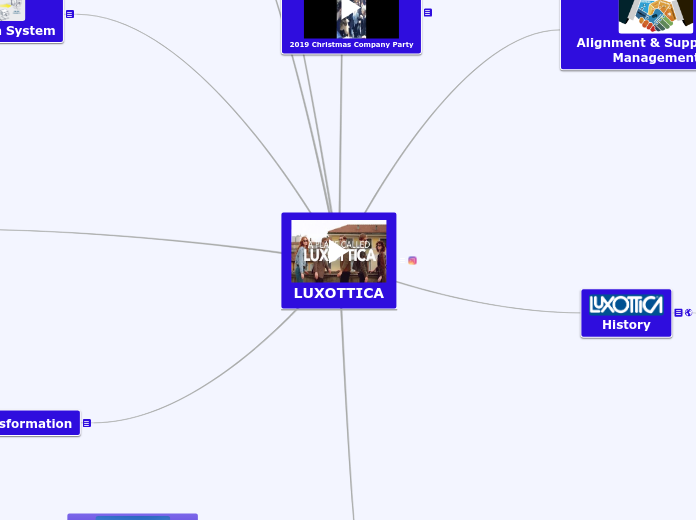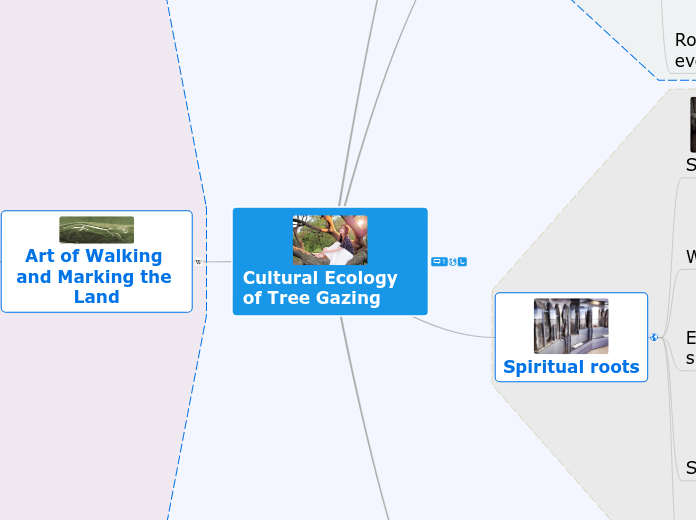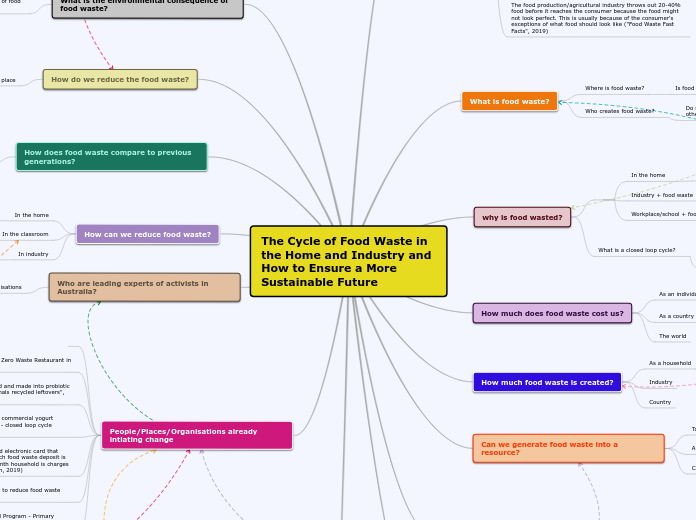von April Soni Vor 5 Jahren
1218
Environmental Education Mind Map
The text explores the multifaceted approach to education that emphasizes sustainability and transformative learning. It underscores the importance of systems thinking and the integration of various subjects and disciplines to cultivate open-mindedness and critical thinking among students.









